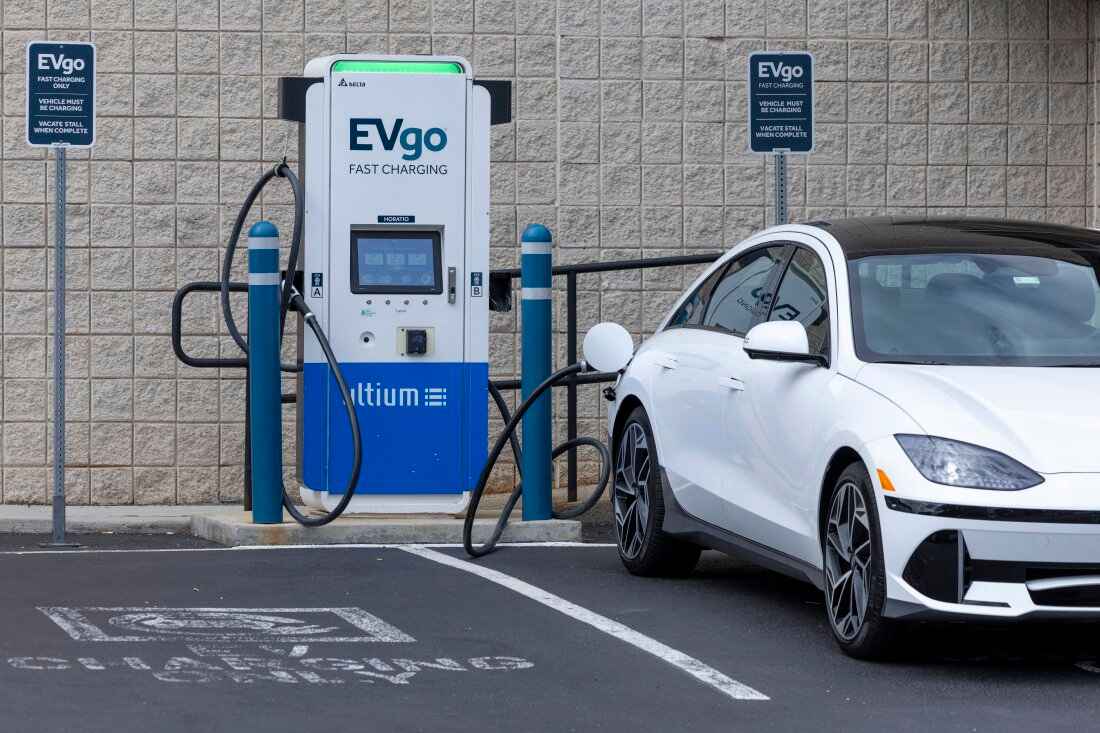Electric vehicles (EVs) have taken the world by storm as a cleaner, more sustainable alternative to traditional fossil-fuel-powered cars. While EVs themselves are a technological marvel, the integration of Artificial Intelligence (AI) is pushing their boundaries further, transforming how they are designed, manufactured, and experienced by users. This blog explores the many ways AI is revolutionizing EVs, including a case study on Tesla, FAQs, and a look into the future.
1. The Role of AI in Electric Vehicles
AI serves as the brain of modern EVs, enabling them to perform complex tasks that go beyond basic driving. From optimizing energy usage to enhancing user experience, AI is at the forefront of innovation in EVs. For instance, AI algorithms process real-time data from sensors to ensure safer and more efficient driving experiences. The benefits of AI integration in EVs include better efficiency, enhanced safety, and unparalleled convenience.
2. AI-Powered Autonomous Driving
Self-driving cars have captured the imagination of many, and EVs are leading the charge in this domain. AI plays a pivotal role in autonomous driving through:
- Real-Time Data Analysis: AI processes massive amounts of data from cameras, radar, and LIDAR systems to understand the environment.
- Object Detection: Advanced algorithms identify pedestrians, vehicles, and obstacles, ensuring smooth navigation.
- Decision-Making Algorithms: AI decides when to accelerate, brake, or turn, mimicking human behavior with enhanced precision.
Example: Tesla’s Autopilot system uses AI to analyze road conditions and guide the vehicle autonomously, with constant software updates improving its functionality.
3. Intelligent Battery Management with AI
One of the biggest challenges for EVs is their reliance on batteries, which must balance longevity, efficiency, and charging time. AI addresses these challenges by:
- Predictive Maintenance: AI predicts battery wear and tear, alerting users before issues arise.
- Optimizing Energy Use: Algorithms dynamically adjust power distribution to maximize battery life.
- Fast Charging Solutions: AI optimizes charging patterns to reduce time without compromising battery health.
Case Study: Tesla’s AI-driven battery management system ensures efficient energy use, enabling long-range travel while maintaining battery health over years of usage.
4. AI-Enhanced User Experience
AI is transforming the way drivers and passengers interact with their vehicles, making the experience more seamless and intuitive:
- Smart Dashboards and Virtual Assistants: AI powers personalized dashboards and voice-controlled assistants, such as Amazon Alexa integrations, making driving more convenient.
- Predictive Navigation: AI uses real-time traffic data to optimize routes and save time.
- Safety Features: AI monitors driver behavior, provides alerts for drowsiness, and activates emergency systems when necessary.
Example: Mercedes-Benz’s MBUX system uses AI to understand user preferences, offering tailored infotainment and navigation experiences.
5. AI in EV Manufacturing and Supply Chain
AI is not limited to the vehicles themselves; it also revolutionizes the way EVs are built and delivered:
- Robotics in Manufacturing: AI-powered robots enhance precision and efficiency in assembling EV components.
- Supply Chain Optimization: Predictive analytics streamline raw material procurement and minimize production delays.
These advancements reduce manufacturing costs, making EVs more accessible to consumers.
6. Challenges and Ethical Considerations
Despite its benefits, integrating AI into EVs comes with challenges:
- Data Privacy: AI systems collect vast amounts of user data, raising concerns about security and privacy.
- System Failures: Dependence on AI means that malfunctions could lead to serious safety risks.
- Ethical Dilemmas: Autonomous vehicles face moral questions, such as decision-making in unavoidable accidents.
Addressing these issues is crucial for widespread adoption and trust in AI-powered EVs.
7. Future Trends in AI and EVs
The future of AI in EVs looks promising, with several exciting trends on the horizon:
- Machine Learning: Continuous advancements in machine learning will make EV systems smarter and more adaptive.
- Internet of Things (IoT): IoT will connect EVs to smart cities, enabling seamless communication with infrastructure like traffic signals.
- Energy-Efficient Driving: AI will optimize driving patterns to further reduce energy consumption and emissions.
Experts predict that AI will become even more integral to EVs, paving the way for fully autonomous and energy-independent vehicles.
Case Study: Tesla’s Use of AI in Electric Vehicles
Tesla is a pioneer in using AI to revolutionize EVs. Here’s how Tesla integrates AI into its vehicles:
- Autonomous Driving: Tesla’s Autopilot and Full Self-Driving (FSD) features rely heavily on AI, using neural networks to process data from cameras and sensors.
- Battery Management: Tesla’s AI ensures efficient energy use and prolongs battery life, contributing to its market-leading range.
- Continuous Improvement: Tesla collects data from millions of vehicles worldwide to train its AI systems, delivering over-the-air updates to enhance performance and features.
This approach has set Tesla apart, making it a benchmark in the EV industry.
FAQs About AI and Electric Vehicles
1. How does AI improve the efficiency of electric vehicles?
AI optimizes energy usage, manages batteries effectively, and enhances navigation systems, resulting in improved efficiency.
2. Are AI-powered EVs safe?
Yes, AI enhances safety by processing real-time data to avoid collisions, monitor driver behavior, and activate emergency systems.
3. What are the challenges of integrating AI into EVs?
Challenges include data privacy concerns, system malfunctions, and ethical dilemmas in autonomous driving.
4. Which companies are leading in AI-powered EVs?
Tesla, Waymo, Mercedes-Benz, and Rivian are some leaders in integrating AI into electric vehicles.
5. What’s the future of AI in EVs?
The future includes advancements in autonomous driving, IoT integration, and energy-efficient driving solutions.



